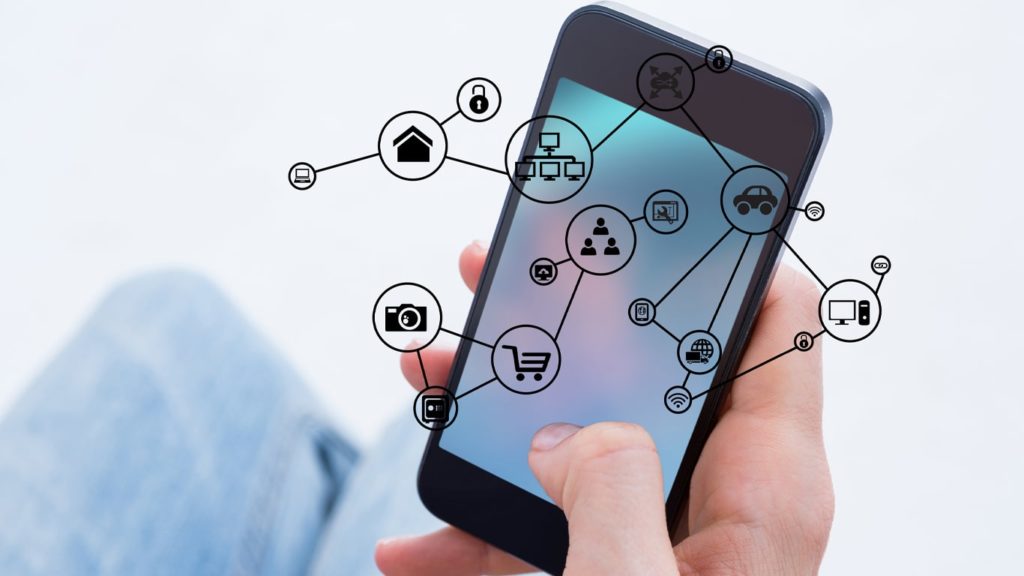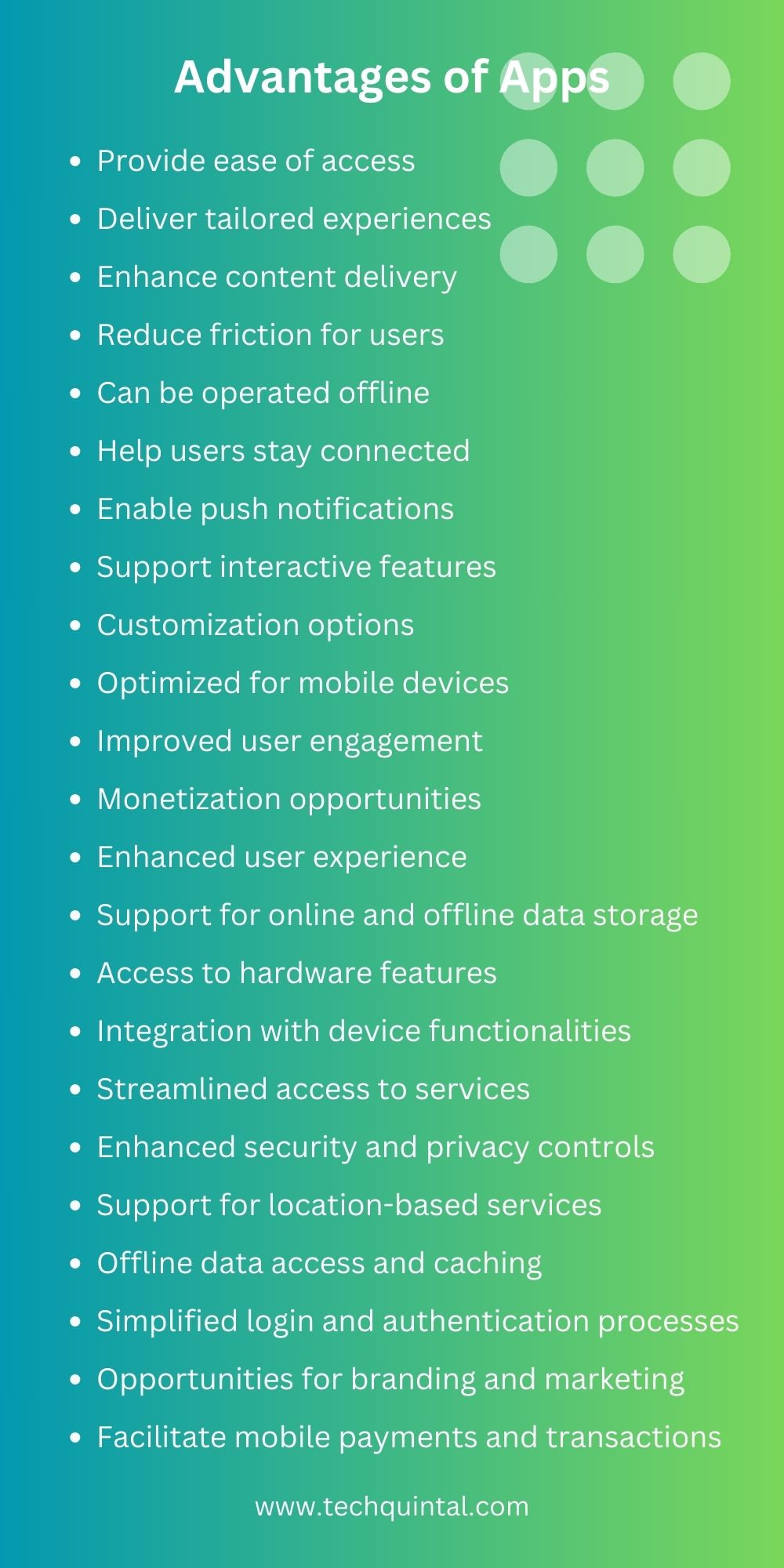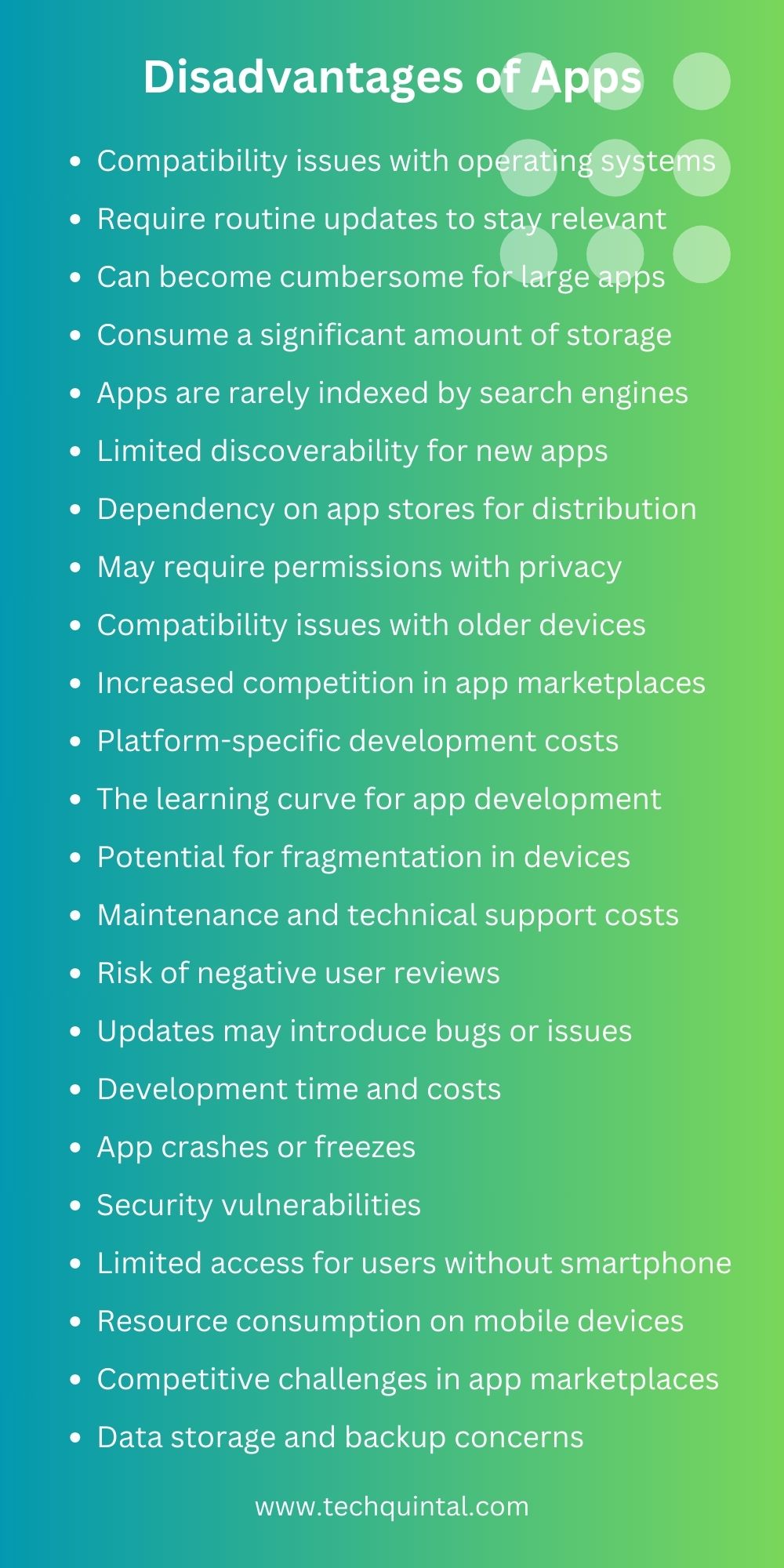
Did you know there are 7.33 billion smartphone users across the globe as of 2023? This makes us wonder what they explore, browse, or download on their devices. People spend most of their time using applications on their devices. The majority of them are aware of what the application is, but for those who don’t, it is a software program used on mobile devices. Be it shopping, gaming, entertainment, travel, utilities, or staying healthy, you have unlimited applications to choose from, fulfilling your ever-changing needs and wants. However, apps come with a handful of advantages and disadvantages.
There are several reasons behind their increasing popularity, the first being the convenience they provide. We will explore the remaining ones in the advantages section. Then, we will cover the disadvantages of apps to complete our study. Let’s get started.
Advantages and Disadvantages of Apps
| Advantages | Disadvantages |
|---|---|
| Provide ease of access | Compatibility issues with various operating systems |
| Deliver tailored experiences | Require routine updates to stay relevant |
| Enhance content delivery | Can become cumbersome, especially for large apps |
| Reduce friction for users | Consume a significant amount of storage space |
| Can be operated offline | Apps are rarely indexed by search engines |
| Help users stay connected | Limited discoverability for new apps |
| Enable push notifications | Dependency on app stores for distribution |
| Support interactive features | May require permissions with privacy concerns |
| Customization options | Compatibility issues with older device versions |
| Optimized for mobile devices | Increased competition in app marketplaces |
| Improved user engagement | Platform-specific development costs |
| Monetization opportunities | Learning curve for app development |
| Enhanced user experience | Potential for fragmentation among different devices |
| Support for online and offline data storage | Maintenance and technical support costs |
| Access to hardware features (e.g., GPS, camera) | Risk of negative user reviews impacting reputation |
| Integration with device functionalities | Updates may introduce bugs or issues |
| Streamlined access to services and information | Development time and costs |
| Enhanced security and privacy controls | App crashes or freezes |
| Support for location-based services | Security vulnerabilities |
| Offline data access and caching | Limited access for users without smartphones |
| Simplified login and authentication processes | Resource consumption on mobile devices |
| Opportunities for branding and marketing | Competitive challenges in app marketplaces |
| Facilitate mobile payments and transactions | Data storage and backup concerns |
Advantages of apps
Apps centralize various features in one place, making it more convenient to access the content. The following are the other benefits of apps.

1. Apps provide ease of access
Apps supply the convenience of access, which is something you can realize yourself. Suppose you want to make a purchase, you can either use the internet or apps. With the internet, you’ll have to put some effort and using search engines to access the site.
Whereas, with apps, it’s just a click away. Applications are available on the user’s home screen, making all the features available to them at once. Moreover, it is quicker to run apps on devices.
2. They deliver tailored experiences
User-friendliness is one of the key objectives in developing the apps. It enhances the user experience considerably. Along with this, the apps can easily deliver customized experiences to users. It allows them to set their preferences at the time of installation which can also be changed later.
As the user’s preferences change so does the experience catered to them. This helps businesses to leverage behavioral data, allowing them to deliver what users want. Consequently, it makes the users as well as businesses happy.
3. They enhance content delivery
Apps take user consent and send push notifications. Businesses that don’t have apps send recommendations and offers to the users via email. Oftentimes, those emails go to their spam folder. With apps, personalized content is delivered smoothly.
A mobile application can also access functions such as GPS and the device camera to offer more features. All this increases the level of interaction between users and businesses.
4. Apps reduce friction
Along with boosting content delivery, accessing functions such as contact lists, GPS, and QR code readers allow apps to reduce users’ efforts. From your experience, you too can relate to how frustrating it gets to invest more effort to simply access content and services.
Applications decrease friction and therefore raise user engagement. Not only this, an app can empower users with automatic form completion and provides seamless access to whatever content whenever they want.
5. They can be operated offline
Users with active internet connections can easily access services online. But those with spotty connections or operating in remote locations need apps that cover their necessity perfectly. Apps move the data to the users’ devices from the server so that they can continue to operate it offline.
Even without an internet connection, they can complete and store important tasks which are uploaded to the server when the device is back online
6. Apps help users stay connected
From video calling apps to video streaming apps, now more than ever you can stay connected to your friends and family. Apps let you hold free group meetings seamlessly. They also provide group chats and synchronize video playback. This is to say, an app makes communication instant, therefore allowing people to maintain relationships with others across the globe.
Disadvantages of apps
Undoubtedly, you get immense benefits with apps, but it is worth noting that this comes with a set of drawbacks. The following are the downsides of apps.

1. They can have compatibility issues
Developing apps is not easy—various operating systems need to be taken into account. To reach potential users, the app should be compatible with Android, iOS, Windows, and other operating systems. In other words, applications won’t function if they are incompatible with users’ devices.
2. Apps need regular updates
They require routine updates to stay relevant. Businesses update their content, but that’s not enough. When there are changes in products or services, they need to revise their apps too. With every update, new features are introduced and bugs are fixed. Thus, failing to update apps will make them outdated.
3. Their use can be cumbersome
Once applications are developed, they need to be maintained and updated. But things get tricky when it comes to large apps. These require additional functionality that eventually makes them slower. Additionally, rolling out updates for large apps can be clunky and time-consuming. It makes applications less user-friendly and increases the chances of users neglecting them.
4. Apps take up a lot of storage space
As we stated earlier, you get immense benefits from using apps, but you have to compromise too. For instance, apps allow you to operate offline.
However, this requires a lot of storage space while the necessary data is downloaded to your device. Some users have devices with sufficient storage space, but most are forced to manage their storage carefully. Modern apps easily exceed 1 GB in size. In such cases, users are left with no option but to delete apps that they no longer find useful.
5. Applications are rarely indexed by search engines
Users have to locate apps on the online repositories. Until they don’t do so, apps remain undiscovered. This is because the search engine does not index the content of apps, making it difficult to optimize them for organic traffic. This is to say apps are difficult to index. Whereas, when it comes to sites, they can be easily indexed and users may discover them easily through web directories.